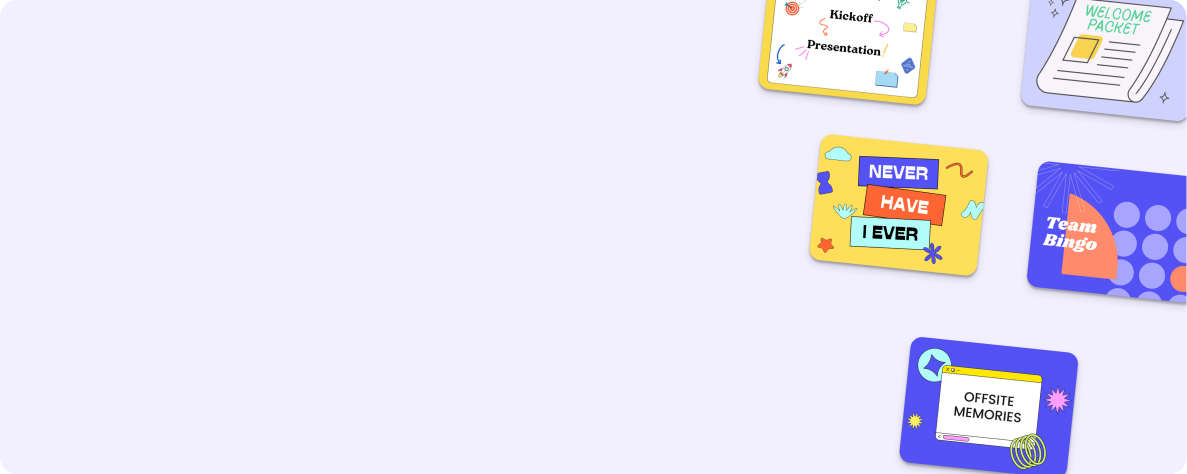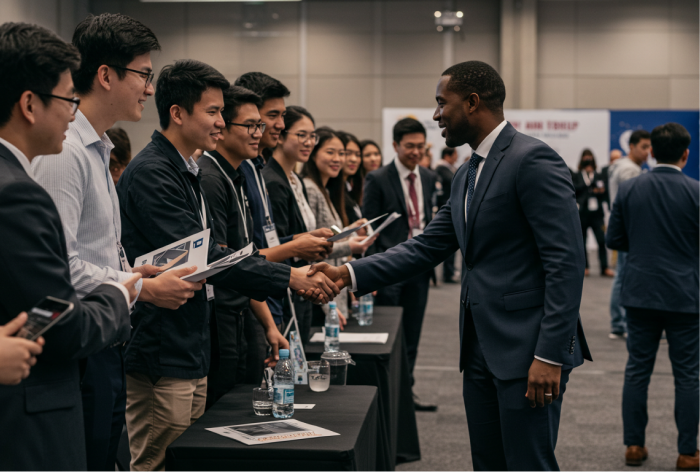Secrets to Selling Out Your Next Conference or Ticketed Event
Planning
Secrets to Selling Out Your Next Conference or Ticketed Event
BoomPop Team · 1/8/2025Creating a Great Conference Marketing Strategy to Drive Ticket Sales
Selling out your next conference or user event starts well before the big day. Effective conference marketing goes beyond just promoting the event itself. A strategic ticketing strategy is crucial to drive ticket sales and maximize attendance.
Below, we’ll explore key strategies to boost ticket sales and attendee engagement, focusing on how to promote a conference effectively. We'll also discuss how a robust ticketing platform can streamline the process and enhance your event's success. Let’s take a look at what goes into a great conference marketing and promotions strategy.
The Psychology Behind Ticket Pricing
Crafting a winning ticketing strategy starts with understanding how attendees perceive the value of your event. Here are some key psychological factors to consider leveraging as you are building out your event marketing materials and strategy:
Perceived Value: Attendees often associate higher prices with exclusivity and quality. For example, offering premium ticket options alongside mid-range tiers can subconsciously increase the perceived value of the mid-range tickets.
Fear of Missing Out (FOMO): Create a sense of urgency with limited-time offers and limited availability. Utilize ticketing windows and "limited availability" messaging to encourage faster purchases.
Social Proof: Leverage testimonials from past attendees as well as influencer endorsements to drive perceived value for your event, and consider sharing updates on ticket availability once you reach certain thresholds or approach selling out your event.
Leveraging these elements as you create the strategy, messaging, and content for marketing your conference or user event will help set the stage for creating a compelling structure for pricing your event tickets.
Building a Winning Pricing Structure
Pricing the tickets for your conference or event is key. Not only is this initial step critical before you can begin marketing event tickets, it’s also important from a strategy perspective to help ensure your event meets its financial goals, whether that’s to cover event expenses or drive revenue from your conference. Your conference ticket pricing structure will depend on a variety of factors, including whether or not you bring in sponsors and vendors to help offset event costs, the competitiveness of ticket pricing for similar events in your industry, and more. But from a conference marketing perspective, here are some key considerations for building your conferencing ticket pricing:
Create a Tiered Pricing Structure
Creating a tiered pricing structure for your conference allows you to cater to different audience segments and maximize revenue, all while appealing to a wider audience.
Here’s a look at some ideas for ticketing tiers to start with:
Popular Tier Options
General Admission: The most basic tier, offering core event access.
Early Bird: Offer a small number of first-come, first-serve tickets at a discounted rate to encourage early registrants.
VIP: Premium tier with exclusive perks like backstage access, swag bags, or premium seating.
Executive: GA plus access to additional, premium programming such as an exclusive executive summit following the event.
Workshop: GA plus access to an additional day of programming like a limited workshop with an expert facilitator to help attendees in a core area of interest.
How to Make Higher-Priced Tiers Irresistible
Offer exclusive perks: Bundle higher-priced tiers with unique benefits such as VIP meet-and-greets, networking events, or premium seating.
Create a sense of exclusivity: Limit the availability of tickets in higher-priced tiers to create a sense of urgency and desirability.
Clearly communicate the value proposition: Highlight the unique benefits offered to attendees in each tier.
Conference Marketing: Strategies to Sell Out Your Event
With an established ticketing strategy, your next step is to implement effective promotional tactics to drive ticket sales. Here are a few best practices:
Use Scarcity and Urgency Effectively & Authentically: Create a sense of urgency without resorting to misleading tactics. Limited-time offers and "limited availability" messaging can encourage faster purchases, so build your conference marketing plan as a calendar of key natural milestones across your pre-event timeline so that you can authentically harness the key moments of an event. For example, you can begin promoting your conference before registrations open to drive awareness and demand for first come, first serve early bird tickets.
Highlight Event Perks, Ticket Types & VIP Packages: Make sure your conference marketing plan covers all of the different elements of your event across your marketing cadence. This is a natural way to create an engaging, differentiated marketing plan that helps entice attendees of different types and personas.
Market to Your Email Database: Tap into your existing email list to reach loyal followers with targeted campaigns from pre-sale through final ticket call. For example, pre-marketing your event to email subscribers with a message that they’ll get first access to your event registration page once tickets go live is a great way to drive demand and show loyal email readers appreciation by offering exclusive early access. Send updates about key milestones like ticket availability or registration timelines. For many organizations, email marketing is one of the strongest channels for promoting a conference or event, so creating a well-structured email marketing campaign to promote conference ticket sales is key.
Create a Comprehensive Social Media Promotions Strategy: Develop an external promotion strategy that leverages not only your owned social media channels but also incorporates employee advocacy. For an even bigger organic social media splash, collaborate with influencers and partners in your industry to drive more visibility of your event to their networks as well.
Be Strategic with Paid Advertising: For some events, it may make sense to utilize paid advertising strategies to reach a wider audience and drive more ticket sales. When creating a paid advertising campaign for a conference, factor in your projected cost per acquisition for ticket sales from this channel when you’re building your pricing and revenue strategy.
Analyze Data & Adapt Regularly: Use real-time ticket sales data to gain valuable insights into your audience and adjust your campaigns and promotions as needed. With conference marketing, factoring in flexibility and regular measurement is key to making the most of your conference ticket sales timeline.
BoomPop: Your Partner in Event Success
BoomPop's robust, end-to-end events platform simplifies the ticketing process, from setting up tiered pricing and managing sales to tracking registrations. With features like payment processing, real-time analytics, and customizable registration forms, BoomPop empowers event organizers to streamline operations and maximize ticket sales.
Ready to take your event ticketing to the next level? Contact us today for a free consultation.




















